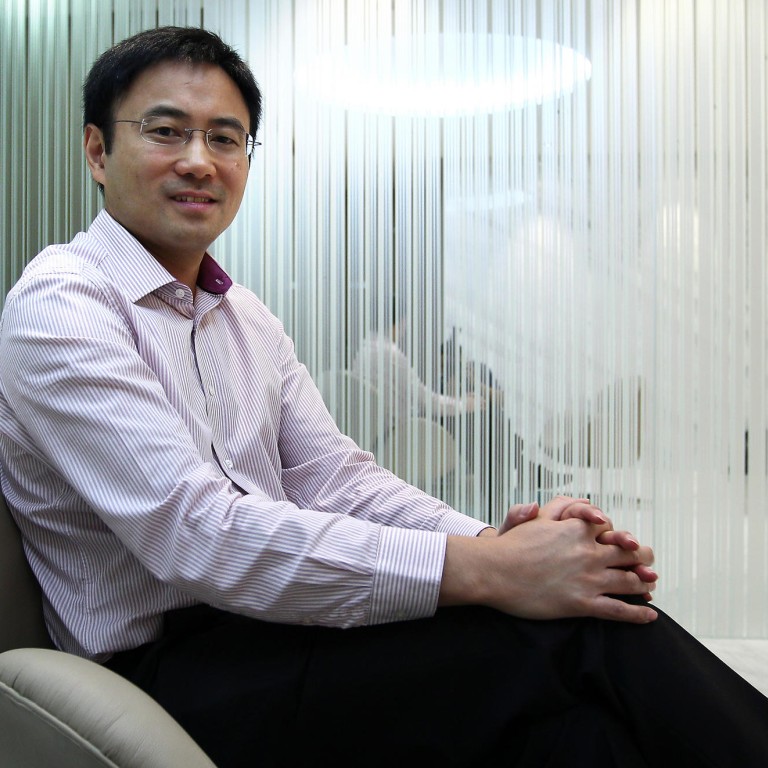
Switch from tenant to property manager pays dividends for Andrew Chung
After switching from tenant to property manager, Andrew Chung's business is rapidly expanding in the Asia-Pacific and Middle East and he is looking forward to a bright future
After renting office space from serviced business operators in Hong Kong for a number of years, British-born businessman Andrew Chung and his partners in Compass Offices switched roles in 2009 and leased 10,000 sq ft of serviced space to rent out to clients. The company changed its strategy again last year to focus on property management. It now has about 500,000 sq ft of office space under management. Plans to go global are also under way.
For leasing the first 28 floors [of space], we used our own money. It was about 18 months ago that we changed our business model to the manager model. It is like the Four Seasons Hotel group; they manage hotel properties with quality services on behalf of the landlords. We also manage properties on behalf of landlords or investors. They pay us to run their properties.
Yes, we give most of the profits to the landlords or investors. We take a management fee. The profit is small but we reap profits by high volume. We can grow bigger with the same resources and that helps us save a lot of investment costs. That's why we can grow so fast.
We have been going for about four to five years. We have 27 centres, of which 17 are in Hong Kong and 10 are outside Hong Kong. We have 500,000 sq ft of space under management.
In Hong Kong, we are expanding into Kowloon and we are expanding overseas including new centres in Sydney, Melbourne, Guangzhou, Dubai and Almaty. We are even looking at other emerging markets in South America.
At the end of last year we were in three cities. This year should see us expanding into a total of 10 to 12 cities across the Asia-Pacific and the Middle East. We plan to expand extremely fast in the next two years. We are not going to stop.
We are not really confident, we are actually quite cautious. Before we lease [new space] we already know the demand. We know we can fill about 50 per cent of the centre. It is not like we open the office and clients will come.
Over the past few years, we saw companies close without a client base. We are fortunate we have a client base. We are in the right place at the right time. After the global financial crisis, there was a big demand for short-term offices as companies wanted to cut costs. Some competitors may lease industrial space, but it may not successfully turn into serviced units.
When the market booms, there are lots of start-ups. When the market is very bad, there are fewer start-ups, but more consolidation and downsizing. They will find more flexible ways to lease offices. So it is not that bad in a bad market. But it is very good in a good market.
It was great for us as we took the opportunity to lease more space, taking four more floors in Cheung Kong Centre, Citibank Tower and China Building, locking in lower prices with longer leases.
I think office rents are moving sideways in Central and downwards in Kowloon East because of the large supply there.
Major landlords seem to also have this view because they are much more willing to sign eight-to-10-year leases with rental caps than previously.
During the downturn after the global financial crisis, it was really hard to negotiate long leases as landlords knew the low rents were only temporary. Now rents are stable and we do not see much volatility. Landlords are happy to secure tenants on a longer-term basis as rents are not foreseen to go up too much anyway.
Companies have become a lot more cost conscious … they take up less office space and are being more efficient instead.
This in turn will keep rents in Central in check and gradually fill up the huge vacancy in decentralised areas, especially in Kowloon East and the new Central Business District Two.
We opened the first centre in Tokyo on the day of the [March 11, 2011] earthquake.
We had some staff from Hong Kong stuck in Tokyo and they had no experience in that situation.
It was life or death. Fortunately we were able to communicate with them via WhatsApp and they were safe.

